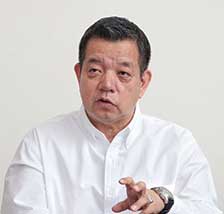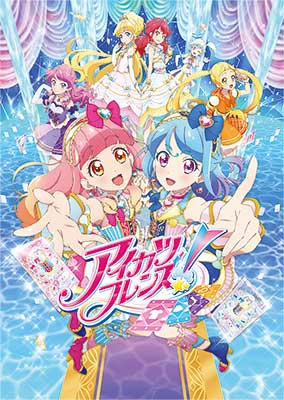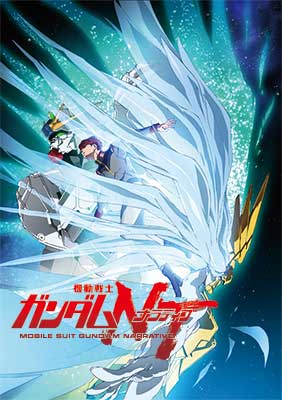Interviews
Evolving from Animation Production Company to IP Development Building Frontiers from Thin Air

Yasuo Miyakawa
President and CEO
SUNRISE INC.
- June 8, 1956
- Date of birth
- April 1981
- Joined BANDAI CO., LTD.
- January 1996
- Director of Bandai Digital Entertainment
- April 2000
- Joined SUNRISE INC.
- April 2004
- Director of SUNRISE INC.
- April 2008
- Managing Director of SUNRISE INC.
- April 2011
- Senior Managing Director of SUNRISE INC.
- April 2013
- Executive Vice President and Director of SUNRISE INC.
- April 2014
- President and CEO of SUNRISE INC. (current position)
- April 2015
- President and CEO of Bandai Namco Pictures Inc. (current position)
- April 2018
- Executive Officer of Bandai Namco Holdings Inc.
SUNRISE INC. is the core company of the IP Creation Unit, which was established under the new Mid-term Plan. The Mid-term Vision of the IP Creation Unit is Evolving from an Animation Production Company to IP Development, and the Unit is advancing the Mid-term Plan in accordance with three key strategies ― improving creativity, improving communication, and improving branding. In this section, SUNRISE President Yasuo Miyakawa discusses his thoughts about the formation of the Mid-term Plan, policies regarding work, and other matters.
Building Frontiers from Thin Air is the new company philosophy.
Miyakawa: The greatest strength of the Bandai Namco Group is the IP axis strategy, under which we generate strong results by developing IP seeds into a variety of forms, such as products and services, and increasing their value. For many years, SUNRISE has continued to create original IP, the core of our strategy, and we have made a large number of products into hits, such as Mobile Suit Gundam. To create original products from “thin air,” we need flexible thinking and knowledge to break through fixed concepts, imagination, and ― more than anything else ― strong conviction.
Leveraging the experience that we have cultivated to date, we are Building Frontiers from Thin Air. We have made this our corporate philosophy, with the idea of utilizing the strengths of the Group to leverage those frontiers by 10 or even 100 times.
What are the strengths of SUNRISE?
Miyakawa: I think that our history of continually maintaining our dedication to original products is one of our strengths. SUNRISE has inherited that DNA, which has become the force that drives our creation of original new products. A company is a living thing, and accordingly our embedded DNA is extremely important. SUNRISE, which has built a history of original products, naturally attracts staff who also want to create original products themselves. I believe that the ideas of those staff contribute directly to the creation of new products, and that the transmission of this DNA to future generations is extremely important.
Would you discuss “improving creativity,” which is a key strategy under the Mid-term Plan?
Miyakawa: The major mission of the IP Creation Unit is the creation and nurturing of new IP. To that end, we must evolve from an animation production company to IP development. If we think of ourselves as an animation production company, then we won’t be able to create anything but animations. Clearly, SUNRISE grew as a company specialized in animations, but at this point it is important for the Group that SUNRISE does not limit itself to animations and creates IP that can be utilized on a Group-wide basis. Going forward, without limiting our modes of expression to animations, we will strive to create IP in all entertainment genres, including novels, live-action movies, and illustrations.
To enhance our ability to create IP, taking on challenges is more important than anything else. In baseball, victory or defeat is determined when you step into the batter’s box. Sometimes we will hit home runs and sometimes we will strike out, but if we fear failure then we will not be able to create IP. Also, the act of stepping into the batter’s box is itself a type of expression. Some projects are announced after thorough preparations, while others start small and are subsequently nurtured into something large. Sometimes, a project initially shows no signs of expansion but later records substantial growth after several years. For example, Mobile Suit Gundam has now become an IP that is representative of the Bandai Namco Group, but when it was initially broadcast it continued to have low viewership. However, we did not give up and continued to roll-out IP, and starting in the second year of broadcasts, Mobile Suit Gundam became a major boom, with long lines of customers waiting at stores to purchase Gundam plastic models. It is uncommon for IP to become a major hit right from the beginning. When creators have a product that they themselves believe in, I think that it is important for them to nurture it without giving up even when someone opposes that product.
What about “improving communication” and “improving branding”?
Miyakawa: In April, we held an event for Mobile Suit Gundam OO, which was broadcast 10 years ago, and we could sense the fans’ high level of enthusiasm. Uncovering existing IP and adapting it in alignment with the times is extremely important, and we will make the continued implementation of these types of initiatives into one of our strengths. Entertainment has become established throughout society, and there has been substantial expansion in potential targets for entertainment products. SUNRISE has a wide range of products, and accordingly we approach this expansion as an opportunity. We will aggressively implement initiatives for products that were created in the past.
In regard to measures to bolster our ability to communicate the appeal of IP, Gundam made appearances in two U.S. science fiction films that had worldwide releases this year ― Ready Player One and Pacific Rim: Uprising.
Until now, Gundam had only appeared in SUNRISE products. Going forward, we will work to advance measures to heighten the presence of our original IP in Japan and overseas, including this type of initiative. If each individual employee realizes his or her dreams, then there will be as many new IP created as there are employees.
If each individual employee realizes his or her dreams,
then there will be as many new IP created as there are employees.
The IP Creation Unit is planning additional investment of ¥6.0 billion over three years in the creation of original IP.
Miyakawa: In entertainment, I think it is important to provide new products that are different from anything anyone has ever seen before. To take on that challenge, we will make aggressive investments. For employees, a generous budget for IP creation is reassuring, and I expect to see free thinking lead to a variety of ambitious plans.
What products and IP will SUNRISE focus on in the future?
Miyakawa: In the first half of the year, we will focus on the extent to which we can refresh established IP, such as Aikatsu! and Gintama. In the second half, Mobile SuitGundam NT, the latest product in the Gundam series, will open in theaters in November. In addition, we have decided to go ahead with a theatrical release of Love Live! Sunshine!!. Moving forward, we will implement a variety of initiatives. Furthermore, we will roll out DOUBLE DECKER! Doug & Kirill, an original “buddy series” animation that is one part of the new Tiger & Bunny animation series project. Please look for this product.

Aikatsu Friends!
©BNP/BANDAI, DENTSU, TV TOKYO

Mobile Suit Gundam NT
©創通・サンライズ

Double Decker! Doug & Kirill
©SUNRISE/DD PARTNERS
What is the situation with overseas initiatives?
Miyakawa: As 2020 approaches, I feel that there is growing interest around the world in Japan and in Japanese IP. At SUNRISE, we are implementing various types of initiatives to uncover groups of overseas fans, such as selling programming to TV stations in countries around the world, implementing on-line distribution, and holding events. Films are good tools for the worldwide communication of Japanese culture, as with the appearance of Gundam in Hollywood films. Moving forward, we will emphasize films as a content outlet. Furthermore, we will also focus on China, which is a large-scale market.
What are your policies regarding work?
Miyakawa: I am a strong believer in the importance of the front lines. I strive to attend events that draw users, without regard to whether they are held by us or other companies. By directly experiencing the enthusiasm on the front lines, I can enhance my sensitivity regarding products, and accordingly I want to continue to learn from the front lines without losing my curiosity. Also, I am communicating to employees that I want them to realize the dreams that they had when they joined the company. I think that our employees joined the Group because they had something that they wanted to achieve. If everyone remembers those feelings and realizes their dreams, then there will be as many new IP created as there are employees. I would like SUNRISE to be a company in which employees evolve in tandem with fans and which continually creates new IP. I am enthusiastic about the future.
What is your motto for the human side of things?
Kawashiro: I believe that when it comes to human resources, “enjoyment predicts aptitude.” Liking what you do is important in everything including production, utilization, management and customer support. I want our employees to take on the challenges that interest them. It has always been my intention to ensure that this is a company where employees like to work. A top-down approach to making important decisions is all well and good as a governance mechanism, but in terms of IP creation and planning, I strongly believe that such an approach tends to lead to complacency rather than a search for the interesting and challenges to the status quo. In my mind, people who like what they do build productive environments on their own and I would like to see systems suitable to that goal included in the next Midterm Plan. For that reason, I am advocating bold changes, such as widespread decentralization of authority. I want to create an environment where employees take responsibility for the projects they choose and where people are interested in and want to do what they are working on.
This article is an extract from the Newsletter, Bandai Namco News, which was published in June 2018 and partially re-edited.